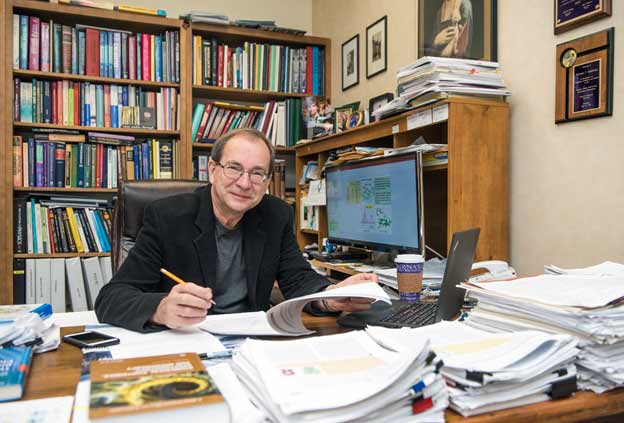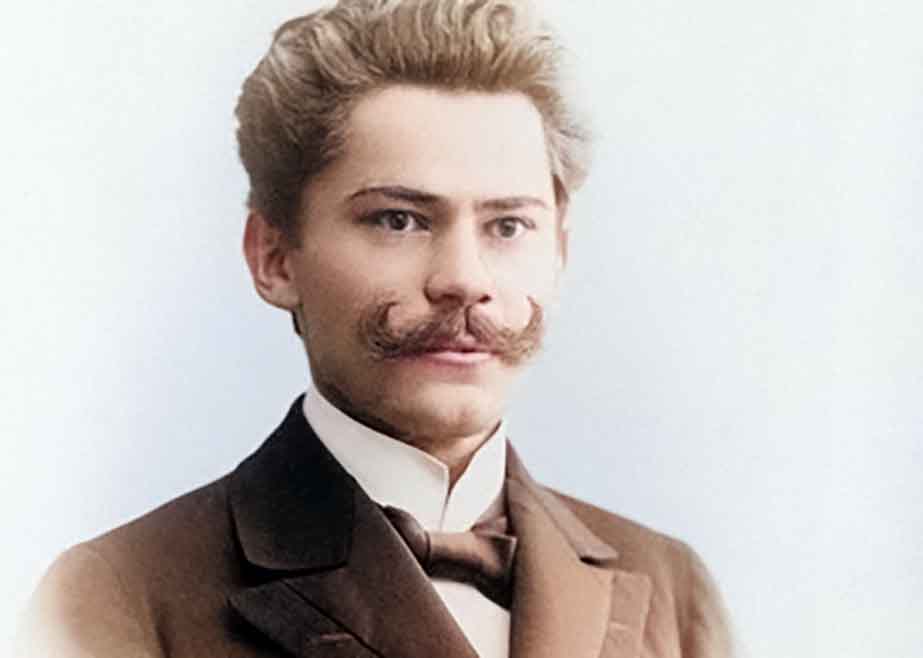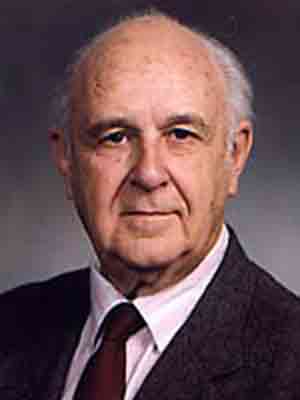In today's interview, Kuryer Polski hosts Ryszard Jankowiak, Distinguished Professor of Chemistry and Ancillary Distinguished Professor of Physics of Kansas State University. I do not translate this complicated title on purpose, so as not to create misleading references in the Polish language, which isn't as expressive in this matter. To explain this complicated title to Polish-speaking readers, it is the highest degree one can receive in the American academic system.

Photo from the private collection of Prof. Jankowiak.
Waldemar Biniecki: Professor, how did it all begin?
Ryszard Jankowiak: I've always been interested in the world around us. For this reason, I studied physics at the Adam Mickiewicz University in Poznań and at the Gdańsk University of Technology, where I obtained my doctorate in 1981 in the field of solid state physics. Then a short research stay in Italy (University of Camerino) and return to Poland.
Waldemar Biniecki: How was your academic career abroad?
Ryszard Jankowiak: In 1981 (two weeks before the martial law) I was invited to the Philipps University in Marburg, Germany, where I worked from 1981 to 1985. After receiving several job offers in the USA, my wife and I decided in 1985 to emigrate. A few days after arriving in the States, I started working at the Ames Laboratory USDOE (Iowa State University, Ames, IA) where I worked for 20 years. In 2005, I transferred my labs to the University of Kansas (Kansas State University).
Waldemar Biniecki: Is research on photosynthesis your holy grail to which you devoted your scientific career?
Ryszard Jankowiak: Yes and no, because for about 20 years, I worked at the same time in the field of cancer research. DNA can be destroyed by harmful chemicals. However, in both cancer research (DNA adduct identification) and photosynthesis (energy transfer, charge separation, electron transfer at reaction centers and various photosynthetic protein antennas), we used similar (low temperature) high resolution laser spectroscopy techniques. As you know perfectly well, photosynthesis (conversion of solar energy into chemical energy by plants, algae, and various photosynthetic bacteria) is one of the most important biochemical reactions on Earth.
Waldemar Biniecki: You collaborated with many governmental organizations, receiving grants for your research. What were these organizations and what amounts of government money supported your research?
Ryszard Jankowiak: Our basic research was mainly funded by NSF (National Science Foudation) and the US Department of Energy (US-DOE; Basic Energy Sciences). For example, while working at Kansas State University, I received about $4 million in research funding. During the last 40 years I have collaborated with many universities in the USA and around the world. Some of our research was funded by the NCI (National Cancer Institute) and NASA (National Aeronautics and Space Administration).
Waldemar Biniecki: You undoubtedly belong to the Polish scientific authorities working outside Poland. Your achievements and biography have been included in the Golden Book of Polish Science published on the centenary of Poland regaining independence. The Kościuszko Foundation and the Collegium of Eminent Scientists of Polish Origin and Ancestry have awarded you with the title of the Collegium's outstanding scientist. What were your scientific contacts with Poland?
Ryszard Jankowiak: Over the last 40 years, I have delivered many lectures/seminars in Warsaw, Gdańsk, Poznań and Kraków. I also hosted Polish scientists in my laboratory. One of my students worked for a year at the Institute of Physics of the Polish Academy of Sciences. In 2013 (during my "sabbatical") I worked and conducted seminars for students of physics for six months at the Institute of Physics at the Gdańsk University of Technology. Science in Poland is doing well, the human potential is huge, however, to be competitive in the world, public/government resources are not sufficient. In Poland, in my opinion, we need more funding for science and education from private sources.
Waldemar Biniecki: In how many countries have you presented your research results?
Ryszard Jankowiak: Scientific contacts are essential. I presented the results of our research at various conferences and invited lectures in 23 countries.
Waldemar Biniecki: I had the great pleasure to meet your wife Majka. Would you like to reveal the secret of your private life?
Ryszard Jankowiak: I met my wife in 1970 in Poznań at the university. We have been married for 48 years. My wife also used to work at Kansas State University (now retired). We have two children and three grandchildren. Daughter (Monika) is an art restorer, who lives and works in Toronto (Canada). Our son (Martin) is a theorist and mathematical physicist by training. He is currently Machine Learning Fellow at the Broad Institute at MIT and Harvard (Cambridge). We all love traveling and, with my wife, we often visit Poland.
Waldemar Biniecki: Thank you, Professor.





